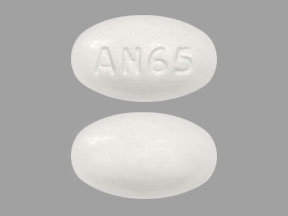My prescription
Edit
250MG, Abiraterone (120 Tablets)
Select pharmacy

CVS
$9732.11
COUPON PRICE
Walgreens
$115.80
COUPON PRICE
Albertsons
$118.58
COUPON PRICE
Walmart
$5456.99
COUPON PRICEAbiraterone savings card
Show this card to your pharmacist
Walgreens
$115.80
BIN
ID
PCN
GRP
019876
LH786BC4E6
CHIPPO
LHX
Powered by
More prescriptions for prostate cancer
More prescriptions for prostate cancer
Abiraterone dosage forms
Dosage Quantity Price from Per unit 250MG 120 Tablets $115.80 $0.96 250MG 1 Tablet $9.89 $9.89 250MG 30 Tablets $35.70 $1.19 500MG 60 Tablets $429.00 $7.15
| Dosage | Quantity | Price from | Per unit |
|---|---|---|---|
| 250MG | 120 Tablets | $115.80 | $0.96 |
| 250MG | 1 Tablet | $9.89 | $9.89 |
| 250MG | 30 Tablets | $35.70 | $1.19 |
| 500MG | 60 Tablets | $429.00 | $7.15 |
Abiraterone Warnings
The following safety information outlines the important risks and precautions associated with the use of abiraterone (Zytiga). It is crucial to read these warnings carefully and discuss any concerns with your healthcare provider.
Fluid Retention and Cardiac Concerns: Abiraterone (Zytiga) may alter hormone levels, potentially leading to fluid retention, heart rhythm changes, low potassium, and high blood pressure. These issues can be severe, especially for individuals with existing heart conditions such as heart failure or recent heart attacks. Regular monitoring of blood pressure and potassium levels through lab tests is essential. A steroid is often prescribed alongside abiraterone to mitigate these risks. Alert your healthcare provider if you experience dizziness, rapid heartbeat, lightheadedness, confusion, or swelling in the limbs, as these might indicate side effects.
Reduced Stress Hormone Production: Abiraterone can reduce your body's production of stress hormones. To compensate, your provider may prescribe a steroid like prednisone or methylprednisolone. It's important not to abruptly stop this steroid, as stress or abrupt cessation can lead to insufficient stress hormone levels. Report symptoms such as weight loss, fatigue, confusion, or abdominal pain to your provider immediately.
Liver Health: The use of abiraterone (Zytiga) can lead to liver damage, particularly within the first three months of treatment. Routine blood tests are necessary to monitor liver health, as symptoms may not always be present. Contact your healthcare provider if you notice fatigue, loss of appetite, nausea, vomiting, dark urine, abdominal pain on the right side, or jaundice.
Pregnancy Risks: Animal studies suggest that abiraterone may harm an unborn child or increase the risk of miscarriage. If your partner can become pregnant, use effective birth control, such as condoms, during treatment and for three weeks afterward. Avoid direct contact with the tablets by your partner. Inform your healthcare provider immediately if your partner becomes pregnant.
Blood Sugar Levels: In individuals with diabetes, particularly those on medications like pioglitazone or repaglinide, abiraterone (Zytiga) may cause low blood sugar. Close monitoring of blood sugar levels is recommended, and medication adjustments may be necessary. Notify your provider if you experience symptoms like sweating, shaking, rapid heartbeat, confusion, or dizziness.
In case of any adverse effects or concerns, immediate communication with your healthcare provider is advised to ensure safety and proper management.
Abiraterone Side Effects
Common side effects:
- headache
- hot flashes
- joint pain or swelling
- tiredness
- cold-like symptoms such as a runny nose or sore throat
- muscle discomfort
- constipation
- diarrhea
- heartburn
- trouble sleeping
- fluid retention leading to swelling
Less common but important to monitor:
- high blood pressure
- dizziness
- increased or painful urination
- bloody urine
Serious side effects:
- liver damage symptoms (persistent nausea, vomiting, right-sided stomach pain, yellowing of the skin or eyes)
- changes in heart rhythm
- chest pain
- signs of heart failure
- dangerously low levels of stress hormones (fast heartbeat, confusion, muscle weakness)
- serious allergic reaction (rash, severe dizziness, trouble breathing)
Abiraterone Interactions
Interactions with high risk of serious adverse effects and should be avoided:
- Dasabuvir
- Eliglustat
- Selexipag
- Radium Ra 223 Dichloride
Interactions with moderate risk that may require dose adjustment, closer monitoring, or timing changes:
- Abametapir
- Amiodarone
- Amphetamine
- Apalutamide
- Benzphetamine
- Carbamazepine
- Cilostazol
- Clozapine
- Dabrafenib
- Dextroamphetamine
- Dihydrocodeine
- Domperidone
- Donepezil
- Doxorubicin
- Doxorubicin Hydrochloride Liposome
- Enzalutamide
- Fluoxetine
- Fosphenytoin
- Ifosfamide
- Lisdexamfetamine
- Lumacaftor
- Lurasidone
- Methamphetamine
- Mitotane
- Naloxegol
- Olaparib
- Ospemifene
- Oxycodone
- Ozanimod
- Paclitaxel
- Phenytoin
- Piperaquine
- Pixantrone
- Rifampin
- Rosiglitazone
- Simeprevir
- St John's Wort
- Tamoxifen
- Thioridazine
- Tucatinib
- Vortioxetine
Interactions with low risk that usually do not require a change in therapy:
- Dextromethorphan
- Repaglinide

